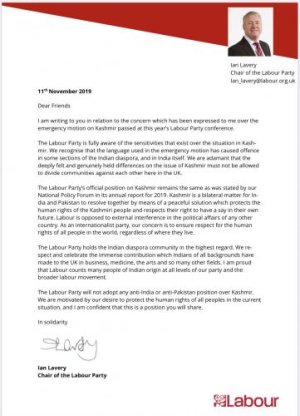In the words of the British historian, Peter Hennessy, “the Labour Party enjoyed a close relationship with Congress politicians (Jinnah's people thought, with some reason, that Labour ministers were in the Congress's pocket).”
Of course there was more to the British government’s favouritism to Congress, after the war ended, then the close links between the parties and personal relationships. Wider British interests had dovetailed with Congress interests in aiming to deliver an undivided India. British economic and strategic interests were seen as best protected by a fast transfer of power to the Congress. Close cooperation with the Congress was viewed as vital to ensure that India joined the Commonwealth and was not seduced by the communist influence.
On Kashmir more specifically, to be fair to Attlee he did try to persuade Nehru on the necessity of a plebiscite. In Attlee’s own words:
"I can recall many long discussions with Mr Nehru on the vexed question of Kashmir, sometimes between the two of us, sometimes with other prime ministers, but they proved fruitless. Although we proposed every possible variant to have fair plebiscite, to which he had already agreed in principle, we could not get acceptance from Mr Nehru. I have always considered this to be the blind spot of a great statesman."







 )
)